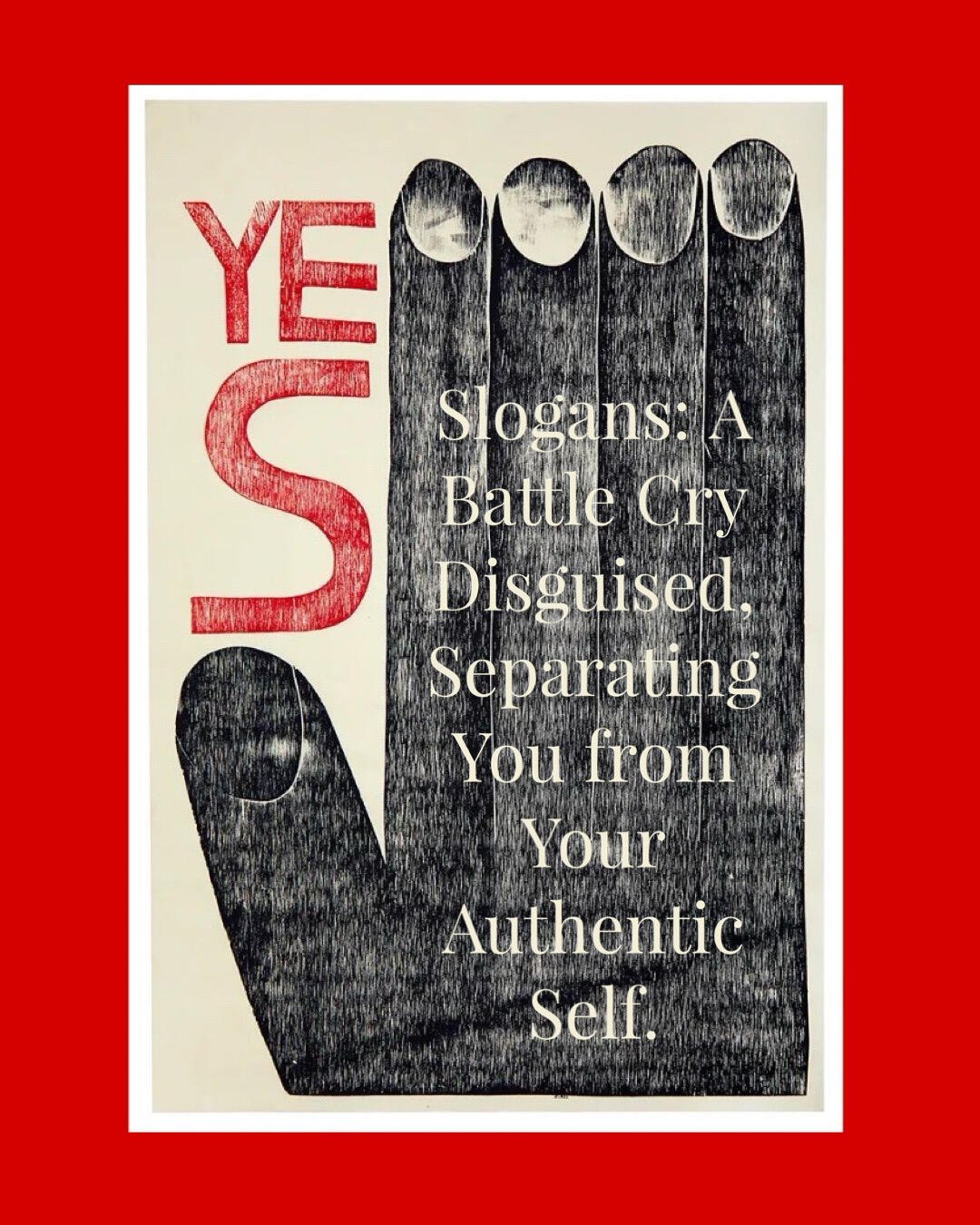monikaco on Nostr: Look back at your life and ask yourself: Are your beliefs original, or have they been ...
Look back at your life and ask yourself: Are your beliefs original, or have they been part of a slogan others wanted you to lure you in?
How free is your thinking, and are your actions based on your authenticity or the fear of belonging in a group?
I consider #slogans or pitches a form of soft propaganda. These catchy phrases are designed to persuade and #influence people subtly, enticing them into buying into ideas or products that may be unnecessary or even carry a flat or misleading meaning.
The word “slogan” originally comes from the Scottish Gaelic “sluagh-ghairm,” a “battle cry,” which was used to unite and motivate clans in battle. Over time, it was adapted into the world of advertising and politics, where slogans became tools to rally consumers or voters around a product, brand, or cause.
By the mid-20th century, advertising executives, famously known as “Mad Men,” perfected the art of the slogan, using it to sell not just products, but entire lifestyles and aspirations. Thus, the #propaganda machine found a new vessel for influence, shaping our #perceptions and actions in ways far more profound than their simplicity might suggest, blurring the line between persuasion and manipulation.
Edward Bernays, the “father of public relations,” was the ultimate trickster in advertising; he wrote the book Propaganda, which delves into the methods of shaping public opinion.
The word “propaganda” itself comes from the Latin “propagare,” meaning to propagate or spread. Slogans, like viruses, can impregnate and shape the health of culture, influencing how we think and act in subtle yet powerful ways.
#befree #questioneverything
How free is your thinking, and are your actions based on your authenticity or the fear of belonging in a group?
I consider #slogans or pitches a form of soft propaganda. These catchy phrases are designed to persuade and #influence people subtly, enticing them into buying into ideas or products that may be unnecessary or even carry a flat or misleading meaning.
The word “slogan” originally comes from the Scottish Gaelic “sluagh-ghairm,” a “battle cry,” which was used to unite and motivate clans in battle. Over time, it was adapted into the world of advertising and politics, where slogans became tools to rally consumers or voters around a product, brand, or cause.
By the mid-20th century, advertising executives, famously known as “Mad Men,” perfected the art of the slogan, using it to sell not just products, but entire lifestyles and aspirations. Thus, the #propaganda machine found a new vessel for influence, shaping our #perceptions and actions in ways far more profound than their simplicity might suggest, blurring the line between persuasion and manipulation.
Edward Bernays, the “father of public relations,” was the ultimate trickster in advertising; he wrote the book Propaganda, which delves into the methods of shaping public opinion.
The word “propaganda” itself comes from the Latin “propagare,” meaning to propagate or spread. Slogans, like viruses, can impregnate and shape the health of culture, influencing how we think and act in subtle yet powerful ways.
#befree #questioneverything

